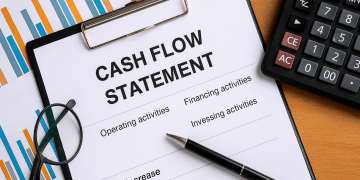Navigating Personal Finance in South Africa 2025: Advice for Every Income Level

Have you ever looked at your bank account and wondered, “Where did all my money go?”
You’re not alone.
Managing money is something we all have to do, but few of us were ever really taught how to do it right.
Whether you’re earning minimum wage or bringing in six figures, mastering personal finance in South Africa style takes more than just good intentions. It takes real, actionable know-how—and that’s exactly what this guide is here to give you.
Let’s break it down, one income level at a time. No jargon. No judgement. Just real talk about money.
Why Personal Finance Matters—No Matter What You Earn
Money isn’t just about surviving. It’s about living with less stress, having choices, and building a future.
And the truth is, personal finance in South Africa isn’t a one-size-fits-all game. A strategy that works for someone earning R10,000 a month won’t look the same for someone earning R100,000.
But the fundamentals? They apply to everyone.
Low-Income Earners: Building a Solid Foundation
Let’s say you’re earning less than R10,000 a month. Rent, food, and transport already eat up most of your cash. Saving seems impossible, and debt feels like it’s always looming.
Don’t give up. There are practical savings strategies you can take.
1. Start With Micro-Budgeting
Use every cent with intention.
Try the “Envelope Method”: Set aside physical cash for categories like food, transport, airtime, and emergencies. When it’s gone, it’s gone.
Or use budgeting apps like 22seven or Goodbudget to track your spending daily.
Pro Tip: Highlight needs vs. wants. That weekly takeaway? It adds up. Cut where you can.
2. Prioritize Essential Debt Payments
Debt is expensive. Credit card interest can be as high as 25% per year.
If you’re in over your head, speak to your creditors about restructuring your payments or applying for debt management. This can save your financial life.
3. Embrace Group Savings
Stokvels aren’t just cultural—they’re powerful.
Pooling money with a trusted group of friends or family creates discipline and access to larger sums when you need them.
Middle-Income Earners: Gaining Control and Growing
You’re earning between R10,000 and R30,000. You have some breathing room—but it’s still easy to overspend. Here’s where you shift from surviving to thriving.
1. Automate Your Budget
Use the 50/30/20 rule:
- 50% on needs
- 30% on wants
- 20% on saving and debt repayment
Set up automatic transfers the moment your salary lands. Make saving a habit, not a chore.
2. Emergency Fund = Peace of Mind
Aim to save at least one month’s worth of expenses. Life happens—car breakdowns, load shedding damage, medical costs. Be ready.
Put this in a separate high-interest savings account. Not your everyday cheque account.
Read More: How Live Financial Sessions Help You Make Smarter Investment Choices?
3. Pay Off “Bad Debt” First
Store cards. Personal loans. High-interest credit cards.
These are money vampires. Kill them first.
Snowball your payments: Pay off the smallest debt first, then roll that payment into the next biggest one.
High-Income Earners: Securing the Future

Earning R30,000+? Congrats. You’re in a strong position—but you still need discipline.
In fact, the higher your income, the easier it is to fall into the lifestyle inflation trap.
1. Audit Your Spending Habits
You might be bleeding cash without realizing it—Uber Eats, DSTV Premium, five streaming subscriptions?
Trim the fat.
Reassess every 3–6 months. Use spending reports from your bank or apps like YNAB.
2. Diversify Your Savings
High income means high potential.
Use fixed deposits, tax-free savings accounts (TFSAs), and even ETFs (Exchange Traded Funds) to grow your money over time.
Don’t let it sit idle in a low-interest account.
3. Plan for Retirement—Now
Think retirement is far off? Think again.
Start contributing to a Retirement Annuity (RA) or your company’s pension fund. The earlier you begin, the more time compound interest you will get.
You may also like: What You Don’t Know About Money Can Hurt You—Here’s How to Fix It.
4. Get Professional Help
Consult a certified financial planner (CFP). A few hundred rands spent now could save you thousands later.
They can help you create a long-term personal finance South Africa roadmap tailored to your lifestyle.
Universal Rules That Apply to Everyone
No matter how much you earn, these truths hold firm:
1. Know Your Numbers
Ignorance is not bliss. It’s expensive.
Track your income, expenses, debts, and savings monthly.
2. Live Below Your Means
This is the golden rule.
If your lifestyle eats up everything you earn, you’re working for bills—not for freedom.
3. Stay Insured
Medical aid, funeral cover, car insurance—pick the right products for your situation. It’s not wasted money. It’s protection.
4. Avoid Get-Rich-Quick Schemes
If it sounds too good to be true, it is. Stay clear of pyramid schemes and risky crypto scams.
South African-Specific Tools and Resources
We’ve got great tools here at home. Use them.
- 22seven – Tracks spending and creates budgets automatically.
- Yoco/PayFast – Great for side hustles and extra income.
- TaxTim – Helps with easy tax submissions.
- Stokvel App – Digitalizes your savings club.
- National Credit Regulator (NCR) – Check if a debt counselor or loan provider is legit.
The Power of the Side Hustle

Got skills? Turn them into rands.
Whether it’s tutoring, Uber driving, freelance writing, or selling baked goods—side gigs are a game-changer, especially if you’re trying to pay off debt or save faster.
Don’t underestimate the power of an extra R1,000 a month.
Personal Finance for Families
Raising kids? Teaching them about money is one of the best gifts you can give.
- Start with a savings jar.
- Teach them the value of delayed gratification.
- Involve them in family budgeting.
- Use pocket money to teach real-world spending lessons.
Even if you didn’t grow up with financial literacy, your kids can.
Final Thoughts: Your Money, Your Freedom
Here’s the truth: No matter your income, you can take control of your money.
It starts with a mindset shift.
You don’t need to be rich to be financially free. You need a plan, discipline, and consistency.
South Africa is full of opportunities—and financial challenges too. But with the right budgeting tips, smart debt management, and clear savings strategies, you’ll be ready for anything.
And when the time comes, you’ll enjoy your hard-earned rest because you’ve done your retirement planning well.
Your financial future isn’t a mystery.
It’s a decision.
FAQs
1. What is the best budgeting method for South Africans on a low income?
The envelope method and 50/30/20 rule are both effective. Use apps like 22seven or Goodbudget to automate and visualize your spending.
2. How can I get out of debt faster in South Africa?
Start by paying off high-interest debt first. Consider the debt snowball or avalanche method, and reach out to registered debt counselors through the NCR if you’re overwhelmed.
3. What are some smart ways to save in South Africa?
Open a Tax-Free Savings Account (TFSA), join a Stokvel, or invest in low-fee ETFs. Also, use fixed deposits for short- to mid-term savings goals.
4. When should I start planning for retirement?
Now. The earlier you start, the better. Use company pension plans, RAs, or individual investments to grow your retirement savings.
5. Are stokvels still a good idea in 2025?
Absolutely. They promote community-based saving, accountability, and often offer better discipline than going solo—just make sure you trust the group.





